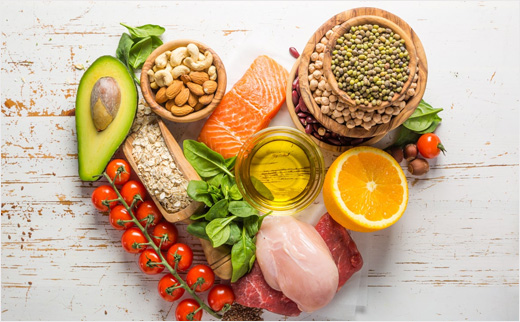
A follicle to get mature takes three to six months and this is also true for sperm as today’s sperm is produced 72 days before. Because of this, preparing your body for IVF treatment starts at least 3 months before.
Although the proven scientific data of what you eat in an IVF diet is not truly clear, the facts we know are that what we eat affects our health, affects healthy egg and sperm formation, helps implantation, and is essential for the formation and maintenance of a healthy pregnancy.
The diet containing high amounts of fruit, vegetables, fish, seafood, legumes, and whole grains is known as a "health-conscious” diet, however, some of the couples who seek IVF treatment prefer unhealthy diets and they consume potatoes and meat, fatty sauces such as mayonnaise and small amounts of alcohol, cereals, sugar, and soups.
Eat fertility enhancing foods: Some foods in nature are considered to contain reproductive essence and are believed to enhance fertility. Some of these are: eggs, royal jelly, fish roe, wild salmon, caviar, seeds, nuts, pollen, seaweed, algae, oysters, artichokes, nettles, oats, flax seeds, goji berries, sprouts, lentils, yogurt, spinach, quinoa.
Eat foods rich in antioxidants: Antioxidants like folate and zinc may improve fertility for both men and women. They deactivate the free radicals in your body, which can damage both sperm and egg cells. Plant foods are rich sources of antioxidants. Antioxidants may have potentially reversed or protected sperm from DNA damage, which subsequently increased fertilization rates.

They are most abundant in fruits and vegetables, as well as other foods including nuts, whole grains and some meats, poultry, and fish.
Foods which are rich in antioxidants are: leeks, onions and garlic, eggplant, grapes and berries, pumpkin, mangoes, apricots, carrots, spinach and parsley, seafood, lean meat, milk and nuts, red capsicum.
Pumpkin and mangoes, tea, green tea, citrus fruits, onion and apples, cruciferous vegetables such as broccoli, cabbage and cauliflower, soybeans, tofu, lentils, peas and milk, sesame seeds, bran, whole grains and vegetables, green, leafy vegetables like spinach, and corn, tomatoes, pink grapefruit and watermelon, seafood, lean meat, milk and nuts, thyme and oregano, seafood, offal, lean meat and whole grains, liver, sweet potatoes, carrots, milk, and egg yolks, oranges, blackcurrants, kiwifruit, mangoes, broccoli, spinach, capsicum and strawberries, vegetable oils (such as wheat germ oil),avocados, nuts, seeds and whole grains, seafood, lean meat, milk and nuts, red meat, offal and fish. Also derived from the plants that animals eat.
Drink enough water. The best beverage for keeping your body hydrated is water. Water stimulates circulation and improves egg health. Water helps to move toxins you’re your body. Drinking plenty of water can aid weight loss. It can also help to maintain a healthy hormonal balance which is also important for fertility. Continue to drink water through pregnancy too.
Fish such as shellfish and salmon that are rich in zinc and essential fatty acids are good for fertility.
Eat slowly digested carbohydrates that are rich in fiber, like whole grains, vegetables, whole fruits, and beans can improve fertility by controlling blood sugar and insulin levels.
Prefer low glycemic index foods. The low glycemic index diet may assist in regulating your insulin levels to reduce the negative impact it may have on fertility and ovulation.
Prefer Mediterranean diet. The Mediterranean diet is rich in good fats, which are anti-inflammatory. The Mediterranean diet is also high in antioxidant-rich plant proteins, fruits, and vegetables, which can improve egg health.
Mediterranean diet, consists high intake of vegetable oils, vegetables, legumes, fish, and a low intake of food snacks or fast foods.
In a study published in the Human Reproduction Journal in 2018, women who followed a Mediterranean diet in the six months before IVF had a significantly better chance of becoming pregnant and giving birth compared to women who did not.
In another study, Mediterranean diet was correlated with increased folate, vitamin B6 in the blood and follicular fluid and was associated with a 40 % increase rate of pregnancy after IVF/ICSI. High intake of vegetable oils in Mediterranean diet causes an increase in linoleic acid.
Linoleic acid is a precursor for prostaglandins, which are important in growth and development of ovarian follicles, the process of ovulation in addition to the development of appropriate endometrial receptivity. For these reasons, an increased intake of linoleic acid could be beneficial for implantation of a fertilized embryo.